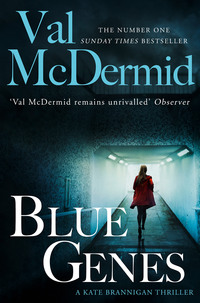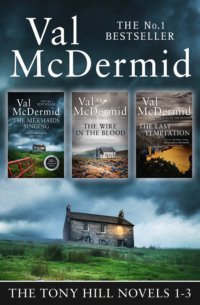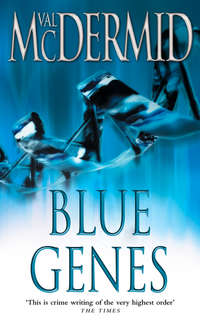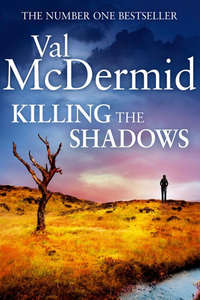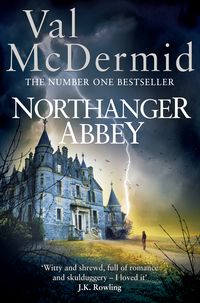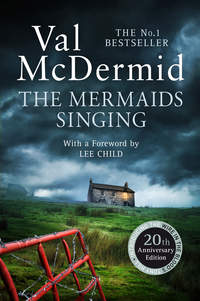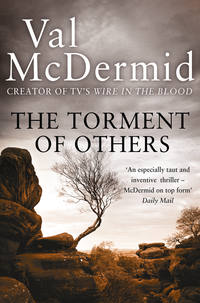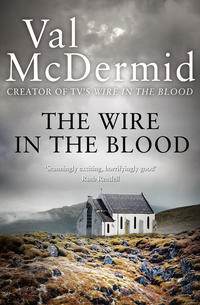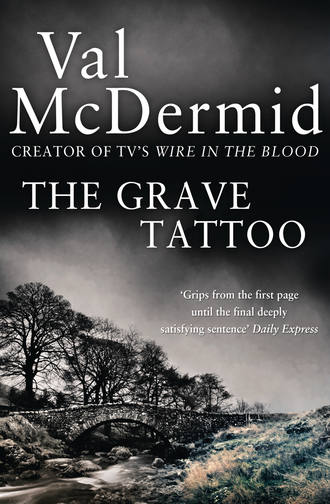
Полная версия
The Grave Tattoo
‘People say she’s your daughter.’
‘People say a lot of things, Dr Gresham. A lot of them are bullshit.’ His face was impassive, his body still.
‘It’s true she doesn’t take after you in looks,’ Jane said. ‘But I suspect she’s inherited your ambition. And your toughness. And your intelligence.’
‘Flattery won’t get you child support, if that’s what you’re after.’
‘There’s more than one kind of child support, Mr Hampton. And right now, Tenille needs something from you.’ She couldn’t quite believe her nerve.
He sighed and rotated his head, as if loosening a stiffness in his neck. ‘You’re bold, I’ll give you that. But you’re confusing me with someone who gives a shit.’
Jane pressed on regardless. While she was still in the room, she had a fighting chance to break through his apparent indifference. ‘Her aunt has a boyfriend called Geno Marley. He’s been sniffing around Tenille. And last night he tried to rape her.’ Now she sensed she had his full attention, though she could not have said quite what had changed.
‘I don’t understand why you’re telling me this, Dr Gresham. This Marley character isn’t one of my people.’
‘Tenille is, though. And a word from you would take him out of her life.’
‘And why should I do that?’
Jane shrugged. ‘If she’s your daughter, the answer’s obvious. And if she’s not, well, it would be the right thing to do anyway, wouldn’t it?’
‘You think I’m some kind of social worker? Here to solve people’s problems?’
She sensed he was playing with her, but she didn’t know how to enter his game. She got to her feet. There was nothing to be gained by staying. ‘You must do what you think best,’ she said. ‘Now, if you’ll excuse me, I have things to do.’
He nodded. ‘I’ll have a word, Dr Gresham. I don’t like scumbags who molest young girls any more than you do. You can tell Tenille she’ll be safe.’
‘Thank you.’ She turned to go, then paused, her hand on the door. ‘Whoever Tenille’s father is, he should be proud of her. She’s remarkable.’
‘Goodbye, Dr Gresham. I don’t expect we’ll meet again,’ he said. He sounded so much like a Bond villain that the spell broke.
Jane grinned. ‘You never know,’ she said.
When she emerged from the flat, she felt elated. In spite of the Hammer’s feigned indifference, she was certain that she had achieved what she’d set out to. She could leave for Fellhead with a clear conscience, secure in the knowledge that nothing bad was going to happen to Tenille.
One of the best things about living and working in Carlisle was the stunning scenery on her doorstep, River thought. She’d discovered it was hard to drive for long in any direction without finding herself in a landscape of breathtaking beauty, whether it was the bleak rolling uplands of Northumberland, with Hadrian’s Wall the crossbeam to the Pennine spine, or the grandeur of the Lake District National Park with its fells, forests and moody waters. She’d grown up near Cambridge in a landscape of unrelenting flatness that exhibited a limited range of variety. Up here in the north, the changing seasons were somehow nearer the surface, with every day bringing some subtle alteration to the world around her. It was, she thought, a landscape as susceptible to analysis for its history as the human body itself. Recently, she’d joined a group of university staff who went hill-walking every Sunday, and only the previous week she’d been brought up short by a casual comment from one of her fellow walkers. As they’d made their way up the eastern side of Great Gable, he’d remarked that if Wordsworth were to return to England now, he’d find more changes in his native Lakes than he would in the quadrangles of his Cambridge college.
‘We think of the landscape as unchanging, but we’re wrong,’ he’d said. ‘Here, everywhere we look we see the hand–or rather, the foot of man. Look at the erosion on these paths. Look at the roads,’ he added, waving his hand in the general direction of Buttermere and Derwent Water where the sun could be seen glinting on the metal roofs of cars. ‘Choked with traffic every decent summer’s day. In Wordsworth’s time, there were meandering drover’s tracks, not roads carved out of hillsides like chunks cut off a cheese. And they were mostly empty. This landscape tells the history of the last two hundred years more clearly than any urban sprawl.’
‘Not to mention the history of the tearoom,’ another colleague had commented darkly. ‘I’m surprised there isn’t one waiting for us on the top of Great Gable.’
River had tucked the initial idea away for further consideration and this morning, as she drove out of Carlisle on the old Roman road towards Bothel, she reflected on it again. Nearly two thousand years had passed since this road had been built by legionaries miles from their home, forced to eat unfamiliar food and accustom themselves to the often hellish winters of the northernmost part of the empire. She wondered how much of what she was seeing now would have awakened memories in their ghosts. Perhaps the skyline, perhaps the colours. But not much else.
She loved the place names too, with their echoes of another wave of invaders. The Vikings had left their mark on the places they occupied with suffixes–Ireby, Branthwaite, Whitrigg. And there were other wonderful names whose origins she knew nothing of–Blennerhasset, Dubwath and Bewaldeth. Driving from Carlisle to Keswick wasn’t just pretty, it was poetry in motion.
She turned left on to the winding road that led between the forested massif of Skiddaw and the long finger of Bassenthwaite. All around her, the trees were changing colour. On the hills, the bracken was turning brown against rough upland grass that the summer rains had left a more vivid green than usual. The lake spangled dark sapphire in the autumn sun and River felt lucky not only to be alive but to be moving through nature at her most glamorous.
She wondered how it had been for Pirate Peat on his last journey on the hill above Coniston Water. With luck, the palaeobotanists might be able to tell her what time of year he had died. But what none of them would ever know was whether he had made that final trip by day or night, in sunlight, rain or mist. Had he been alive to the beauty that surrounded him, or was he one of those who seem unmoved by their surroundings? Was this his home, or was he merely passing through? That at least was something she would probably be able to answer eventually. And once they had established how old the body was, she would be able to track down contemporary drawings and paintings that might reveal something of what her cadaver had seen when he had walked these hills. All of this would only enrich the TV programme, as well as satisfying her own urge for knowledge.
Her speculations dissipated into the ether once she hit the outskirts of Keswick and had to concentrate on getting where she was going. She pulled into the visitors’ slot in the police station car park and hurried inside, composing herself in her professional demeanour for her meeting with DCI Rigston. She was almost sorry that they wouldn’t be working together; she’d liked him when he’d first briefed her, something which hadn’t happened too often in her encounters with police officers.
The civilian on the front desk directed her to the canteen, where she found Rigston tucking into a bacon roll. He got to his feet immediately and shook hands, wiping his fingers with a paper napkin first. ‘Can I get you something to eat? Early call-out, I missed breakfast,’ he said, gesturing apologetically at his plate.
‘Don’t mind me, I’m fine,’ River said, sliding into the seat opposite him. ‘I’m sorry to interrupt your meal, but this won’t take long. I thought you’d like to know that my preliminary investigations lead me to believe this body is well outside your remit.’
Rigston grinned, showing a row of even white teeth. ‘Thought as much,’ he said. ‘But I’m glad to have it formally confirmed all the same. Do you know how long he’s been in there?’
‘Hard to be precise at this stage. But, ballpark, I’d say somewhere between 1785 and 1815. That’s a very rough guesstimate,’ she added hastily. ‘Don’t hold me to it. I’ll have a better answer once we’ve completed the work-up.’
‘You’re giving him the full monte, then?’ Rigston looked mildly surprised.
‘All the bells and whistles. And the best of it is, I’ve got someone else to pay for it.’ As she spoke, she watched him eat. You could tell a lot about someone by the way they ate. Ewan Rigston took small bites, chewing carefully with his mouth closed before he swallowed. He paused between mouthfuls, considering his next point of attack. So, not the kind of man who charged at things like a bull at a gate. Measured, thoughtful, and maybe a little bit repressed, she thought.
‘How did you manage that?’
‘Northern TV’s going to film the whole process. They’re making a documentary series about my Pirate Peat.’
‘Good for you. Maybe I could get them to sponsor my armed robbery investigation,’ he added wryly. ‘But what’s with the “Pirate Peat”?’
‘They like a nice catchy tag. We found him in a bog, hence the “Peat” part. And his tattoos are typical of a sailor, so I let my fancy run away with me. Besides, it sounds better than Seaman Peat.’
‘You’re right about that. Good luck with it.’
‘Thanks. Would you like me to keep you posted?’
He nodded. ‘That would be great. In fact…’ He hesitated briefly, then said very quickly, ‘I don’t suppose you’d fancy meeting up for a drink?’
It wasn’t an idea that had so much as crossed River’s mind until that moment. But the more she thought about it, the more she liked it. She smiled. ‘Yes, actually, I think I would. And you can give me the benefit of your expertise.’
‘How so?’
‘Well…’ And she broke off with an embarrassed laugh. ‘I just realised I don’t know your first name.’
He laughed with her. ‘It’s Ewan. So does that mean I get to ask you where your name comes from?’
River winced. ‘Hippie parents.’
‘Must be hard to be taken seriously with a name like that. I have to admit I thought somebody was taking the piss.’
‘No kidding.’ She flashed him a smile that didn’t make it as far as her eyes. ‘But hey, it breaks the ice.’ The smile was gone. ‘And I do expect to be taken seriously.’
Her determination not to be discounted prompted the image of his daughter, the twelve-year-old Rigston saw less and less frequently as her own concerns had become more pressing than the need to see a father who hadn’t lived under the same roof for five years. Like Marnie, River Wilde had the air of someone with something to prove and an absolute determination to succeed. He reminded himself this woman wasn’t a child, no matter how young she seemed. She was accustomed to sights he hoped his daughter would never have to negotiate. ‘Naturally,’ he said. ‘I wouldn’t dream of doing otherwise.’ His expression was friendly and open. River felt herself relax again. ‘So why do you need the benefit of my expertise?’ he continued.
‘Because if he hadn’t been dead for such a long time, I think he definitely would be one for you. I won’t know for sure till we’ve done the full body X-ray and CAT scan, but, at this point, I’m inclined to think our Pirate Peat did not die from natural causes. I think somebody caved his head in.’
For Tenille, being left alone in Jane’s flat was almost worth the reason for the boon. Jane had come back cheerful from her meeting with the Hammer, but had said little about it except that she was convinced Tenille would have no more trouble with Geno. ‘Huh,’ Tenille snorted.
‘I understand why you might feel dubious,’ Jane had said. ‘But my gut feeling is that the Hammer doesn’t say things he doesn’t mean. Now, I’m sorry, but I’ve got to go, Tenille. I’ve got a train to catch. I’m going to be away for a couple of weeks. You can hang out here for the rest of the day if you want, just close the door behind you when you leave, OK?’
‘Yeah, OK. Can I use your computer?’
Jane pondered for a second or two then nodded agreement. ‘But you have to go home tonight. I don’t want you holing up here indefinitely. Promise?’
Tenille had made a pretence of sulkiness, but she’d promised. She would check out the flat later and, if Geno was there, she’d simply come back to Jane’s. She had the key, and knowing Jane was gone, she had the freedom to treat the place as her own for a fortnight. One way or another, things would be sorted out by then, she told herself. No matter what Jane thought, she had no conviction that the Hammer would deal with Geno. He wasn’t the sort to take orders from any woman, never mind a middle-class white one.
Tenille waited patiently while Jane packed a bag with clothes and books, then as soon as she left, she headed into the study. She sat down and her finger hovered over the power switch. She felt too weird and too wired to go online. She’d taught herself over the past few years to think of herself as alone in the world, a single particle spinning through the constellations of other people’s lives. Since her mum had died, she hadn’t allowed herself to feel like she belonged anywhere. Sharon didn’t want her, she knew that. Her aunt was acting out of obligation, not love. Without her mum, Tenille was disconnected from the world, unstrung and free. She’d tried to make herself believe that was the best way to be, and mostly she succeeded. When first she’d been told that the Hammer was her real father, that self-contained part of herself had not wanted to believe it. She couldn’t have put words round it at the time, but it was something to do with not wanting that kind of connection with anyone because to be connected was somehow to render herself vulnerable.
What had made her feel almost comfortable with the idea was the recognition that, even if he was her father, the Hammer wanted nothing to do with her. He had never acknowledged her existence, far less any relationship between them. He had never done any of the things that even the most hopeless of absent fathers occasionally managed. Never turned up on Christmas Eve with an armful of badly wrapped, expensive but inappropriate presents. Never slipped in to the back row of a school nativity play. Never taken her to a movie or McDonald’s. The long and short of it was that he’d never shown the slightest interest in her.
And that made it all the more unlikely that he’d do anything to defend her from Geno. After all, what would it say about him if he did? It would be as good as shouting from the top of D Block that she was his daughter. He might suddenly decide he wanted to start doing the rest of the things that a father was supposed to do, like making sure she went to school and all that shit. Tenille really didn’t think she wanted that pressure in her life.
On the other hand, she sure as hell didn’t want Geno in her life either. And if the Hammer didn’t do something about it, she wasn’t sure how she was going to manage that. It wasn’t like she knew anybody who would weigh in against Geno, and she couldn’t afford to hire any of the local thugs to sort him out. She swore under her breath and turned on the computer, determined not to think any more about it.
I set this down as it was told to me, in the words of my friend:
I had sailed with Lieutenant Bligh before I signed on the Bounty and found him a man whose moods were impossible to predict. When all was going well with the voyage, he would be charm itself. I had reason to know this more than most, for on that first voyage he kept me close, often inviting me to dine with him in his cabin. But if anything chanced to go wrong on board ship, he was choleric and intemperate, always seeking around to cast the blame on another. Never was any occasion of blame laid at his own door. He was also jealous of his position, demanding as of right that respect which a captain needs must earn. Bligh squandered his opportunities to command the good opinion of the men by reason of his vitriol. Sailors are not known for their nicety of expression, but even below decks in the most vile conditions I have never heard language so foul as Bligh would pour out in his expressions of scorn and rage. But he was a fine navigator, and I knew that I could learn much at his side, and so I was willing to forgo my misgivings & to accompany him again, most particularly on such a long voyage.
10
The air even tasted different, Jane thought as she swung down the platform at Oxenholme. She caught sight of her father near the exit and waved cheerily. Allan Gresham raised his hand slightly in response, the small gesture of a modest man more at home on the fell with his Herdwick sheep than he would ever be where people congregated.
Jane dropped her bag and threw her arms around him, brushing a kiss against his rough cheek. ‘Thanks for coming, Dad,’ she said.
‘You can’t rely on the buses,’ he said, picking up her bag with a surprised grunt as he felt the weight. ‘What’ve you got in here? Gold bricks?’
‘I wish. It’s books, papers. A few clothes.’ Jane fell into step beside him as they made for his Land Rover in the car park.
Once they were clear of the station lights and their faces were obscured by early evening darkness, Allan cleared his throat. ‘You’re not in any kind of trouble, are you?’
‘Why would I be in trouble?’ Jane’s voice betrayed astonishment.
Allan hefted her bag into the back of the Land Rover and gave a helpless shrug, hands spread at his sides. ‘I don’t know. It’s just…It’s the middle of term. You’ve got a job to do. Students to teach. I didn’t think you could up sticks with no warning.’
‘I haven’t, Dad. This is official. Study leave. Something’s come up that I need to pursue right away, and my boss has given me a couple of weeks off.’
They climbed aboard and Allan started the engine. He raised his voice to be heard above the rhythmic grunt of the diesel. ‘I thought you did dead poets? How can that be urgent?’
‘It’s the body in the bog, Dad,’ Jane said.
He chuckled. ‘Fletcher Christian, eh? I wondered how long it would take you to convince yourself this was your man.’
‘It might not be him,’ Jane protested. ‘I never said it was. And chances are it’s got nothing to do with him or the Bounty. But it’s given me a peg to hang my theory on, and that’s good enough to buy me some time to look properly into something I turned up last summer.’
‘You’ve always had a talent for persuasion,’ Allan said, resigned echoes of old conflicts in his tone. ‘So if this is your man, how did he end up dead in a Cumberland bog?’
‘I haven’t a clue. And to be honest, that’s what interests me least. I’ll leave that to the historians.’
Her father nodded. ‘Any road, I’m glad there’s no trouble.’ He snatched a quick sidelong glance at her. ‘We cannot help worrying about you, all the way down there.’
It was, she knew, a coded way of asking about Jake. The familiar familial habit of talking about things without actually mentioning them. ‘I’m all right, Dad. What can’t be cured maun be endured. And I’m good at enduring.’
‘Some folks can’t tell the difference between sugar and shite, right enough.’ They fell silent, an easy quiet broken only by the swish of the wipers on the windscreen.
‘How’s Gabriel?’ Jane asked as they turned off for Fellhead.
‘He’s grand,’ her father said proudly. ‘A big strong babby. Started crawling. Your mother said to Diane, “Now your life’s really over.”’ He chuckled. ‘I mind when you got going. You would set your heart on getting somewhere and nothing would stop you. Funny, you were that different from Matthew. He was into everything. You couldn’t take your eyes off him. But he never had that single-minded determination you had, even when you were tiny. So I reckon we’ll get a taste of what Gabriel’s going to be like now he’s off.’
Jane knew the story. It was one of many that always made Matthew scowl. ‘It’ll be nice to see Gabriel. They change so quickly when they’re that small. Does he still look like Granddad Trevithick?’
‘Aye. Your mother says it’s only because he’s bald and round in the face, but I reckon she’s only saying that to keep Diane’s mum happy. She reckons he looks like her brother at the same age. He’ll end up looking like himself, whatever.’
‘I wonder if he’ll get the Gresham curls?’ She reached over and rumpled her father’s thick hair.
‘He won’t thank us if he does. It’s all right for lasses, but us lads don’t like looking as if we’ve spent all day at the hairdressers.’
Jane peered out of the window as they reached the outskirts of the village. Every cottage was imprinted on her memory. She could have picked any of them out of an identity parade. Most were picture perfect, but there was always the odd one whose owner either didn’t care or couldn’t afford to keep it in good repair. Locals dreaded the death of those inhabitants more than any other because the houses always went to outsiders who were taken with the romance of having a holiday cottage in the Lakes and loved the idea of a bargain they could remake in their own images. Their wallets had pushed even semi-derelict properties out of the reach of most of those who had to subsist on Lakeland wages. Jane’s heart sank at the sight of a new For Sale sign. ‘What happened to Miss Forsyth?’ she asked.
‘She had another stroke. Couldn’t manage the house any more so she’s gone into a home in Keswick,’ her father said succinctly as he swung the Land Rover into the narrow lane that led up to their farmhouse on the edge of the village.
‘So I suppose that’ll be another holiday cottage,’ Jane sighed. In the short span of her life, she’d seen almost a third of the homes in the village change hands from families who could track their ancestors back hundreds of years to incomers who did their shopping in distant supermarkets and had no interest in village life except as a curiosity pickled in aspic.
‘I don’t think anybody round here’s got the money for it,’ Allan agreed. ‘Mind, the house by the Post Office, the couple that bought that live here year round. She does something with computers and he publishes a magazine for ramblers.’ He shook his head. ‘Doesn’t feel like proper jobs to me, but at least they’re not just weekenders.’
Allan pulled off into the gateway leading into their yard and parked by the lambing shed. The low farmhouse seemed to crouch against the hillside, its weathered stone blending seamlessly into the landscape. Buttery yellow light spilled out of the kitchen windows, their outline blurred in the heavy drizzle. They hurried through the rain to the back door, shaking themselves like dogs when they were inside the flagged hallway. The glorious aroma of lamb combined with rosemary and garlic wafted round them in a welcoming miasma.
Judy Gresham appeared in the kitchen doorway, wiping her hands on her jeans. ‘Jane,’ she exclaimed, satisfaction written on her face. In spite of the hard life of a hill farmer’s wife, Judy wore her years lightly. She looked more like a woman in her forties than her mid-fifties, her dark brown hair as thick and luxuriant as it had been when Jane had loved to wind it round her fingers as a child. Jane relished the look of surprise on the faces of university friends she’d brought back here when they met her mother. Her father was exactly what they expected–weather-beaten face, stocky frame dressed in overalls over jeans and plaid shirts. But her mother confounded them. Instead of an apple-cheeked woman in pleated skirt and apron stirring jam for the WI stall to the tune of ‘Jerusalem’, they were confronted with a slender, well-kempt woman in jeans and stylish shirts, never seen in public without make-up, earrings and nail varnish. The features in her oval face were small and neat; Jane wished she’d inherited those rather than her father’s deep-set eyes, wide cheekbones and very definite nose. Beside her mother, Jane always felt a big and frumpish disappointment. That was her projection, however; Judy had never indicated by word or look that she was anything other than delighted in her daughter’s appearance.
Now she folded Jane in a tight embrace then held her at arms’ length for a critical scrutiny. ‘You’re a sight for sore eyes,’ she said. ‘It feels like ages since you were home.’


